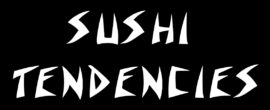It’s just a outstanding (and handful) pattern, but the right way is to memorize. It torments you, you don’t understand why, or how, or anything to be honest. La tête – The head. I quickly picked it up, and we’d sing it every afternoon. Old English used to have grammatical genders, but they fell out of use. In addition, verb agreement is a “must” when a verb conjugated with avoir is a direct object. It’s like adding an -s at the third person of the singular in the present simple in English. Let’s explore why genders exist in the French language, why they’re important, and how you can finally be sure of which gender to use a vast majority of the time. Instead of learning ‘table‘, you learn ‘la table‘. In French all nouns will be either masculine or feminine and there is no neutral. French masculine and feminine. They apply everywhere. Musée , lycée etc think museum lyceum …suggests masculine? But with genders attributed to words in a way that seems completely arbitrary, how can you ever learn the genders of every French noun? But doesn’t it then confuse you when you speak English? Sorry! La Réunion doesn’t end in -e but the common noun réunion is feminine, so the country has the same gender, regardless of the final letter. As to why, well, "rose" is feminine, because most flowers are; "matin" is presumably masculine to form a contrast with "la nuit," just as "soleil" is masculine to contrast with the feminine "lune." Words that use the articles le or un are going to be masculine, and words that use the articles la or une are feminine. Or do you just want to find a French buddy to talk to? I have included the article (le/la) before the noun so that you can learn whether it is a masculine or feminine word. But which do I use bavard (masculine) or bavarde (feminine)? It’s 1 error out of every 5 nouns spoken. Gender with regards to words is not something we spend a lot of time thinking about in English, but in French vocabulary every single noun will have either a masculine gender or a feminine gender. PPPS: And check out these article, you’ll find plenty of words to use there! So, even if you go to a female doctor, she would be referred to as un médecin. The following is a list of common parts of the body in French. All French nouns are either masculine or feminine and, just as in English, they can be either singular or plural. Want to learn to speak even more French the fast, fun and easy way? But as a French native, and a French teacher I can tell you…. Abandonné will be used if the noun it describes is masculine, but if the noun is feminine you’d say “abandonnée”. You use the masculine form if there is at least one man in the group. And the ending also depends on the verb group. Most of them have articles, although there are a few exceptions. Pick which one you need when you need to say bye in French! Why organizing nouns into general groups seemed necessary, and why certain nouns that would seem inherently masculine or feminine fall into the completely opposite category, is still uncertain. Oui, I’m including pronouns in articles, sue me. On the picture below, you can see that the gender of the word chat is masculine, because you have the abbreviation nm which means masculine name. Merci Beaucoup! – Sharp are masculin This may have had practical, as well as religious, purposes. Two genders: masculine and feminine. Le livre de Mary = son livre; La table de Patrick = sa table Now for beginners, you’re set. “Abandonné” is different, because it’s an adjective. Of course, some words change very little when it comes to the noun they’re modifying. So, the masculine noun bateau (meaning boat) takes the form of le bateau (the boat), un bateau (a boat), or les boats (the boats). But we do it anyway. You understood well. Glass , mirror, pen, pencil You may have heard that there is only one way to know the gender of a noun: to learn it by heart. The gender of words in French – as well as their grammatical and social implications – can be complicated. This is also the case when you’re talking about people and other living things: Cléa, Hélène, Rose, et Paul aiment les films. 26 Related Question Answers Found There is only one noun in this sentence. Il y a toujours des exceptions. No matter how much research you do or how many linguistics classes you take in college (trust me), you’ll never get a definitive answer to this. Are you trying to learn French? According to a study by McGill University, a noun’s ending indicates its gender in 80% of cases . She let me borrow her car for the day.) If none of these other strategies speak to you, here’s another that’s often recommended: Instead of simply learning each word and its gender by heart, it can be smart to associate each gender with an action in your mind. Elle is the feminine pronoun. Always a long list. She is red. thanks. French adjectives change based on the gender and number of the noun they modify, 13 common French mistakes that’ll make you feel awkward, -an, -and, -ant, -ent, -in, -int, -om, -ond, -ont, -on (but not after s/c¸), -air, -er, -erf, -ert, -ar, -arc, -ars, -art, -our, -ours, -or, -ord, -ors, -ort, -ir, -oir, -eur, -aie, -oue, -eue, -ion, -te, – ée, -ie, -ue, -asse, -ace, -esse, -ece, -aisse, -isse/-ice, -ousse, -ance, -anse, -ence, -once, -enne, -onne, -une, -ine, -aine, -eine, -erne, -ande, -ende, -onde, -ade, -ude, -arde, -orde, -euse, -ouse, -ase, -aise, -ese, -oise, -ise, -yse, -ose, -use, -ache, -iche, -eche, -oche, -uche, -ouche, -anche, -ette, -ete, – ête, -atte, -otte, -oute, -orte, -ante, -ente, -inte, -onte. For example, older generations may not think men should help with household chores, but many of the younger Frenchmen I know do help with chores, as well as taking care of and spending one-on-one time with their children. No spam. PPS: A little bit of sharing would make this website even better too! i have noticed that most feminine nouns end in vowels, usually “e”. Salut! Regardless of their unclear and arbitrary origin, you can’t master French if you don’t master French genders. French also has masculine and feminine articles; le, les, and un are the masculine articles, while la, les, and une are the feminine ones. EXCEPT, 1 noun doesn’t equal to one definition. Want more practice, or different ways to practice? Pay attention when you watch, read, and listen to French. So, yes, this does all mean that French noun genders are completely arbitrary in many cases. I can’t confirm you that 90% of nouns do end with a vowel, because I would need to check out the entire dictionary, but it’s clear that there are lots of ways to determine the gender of French nouns, and the vowel rule may be one of them. 32 years in France and I’m still lost with word gender. happiness is masculine : le bonheur but joy is feminine : la joie… Oh the joys of French!! As for vowels, there exist 12, of different lengths – o is shorter, than ó, or u is shorter than ú, etc. Many words ending in eux are adjectives, so they have no gender. Sadly, some other jobs, like un médecin (a doctor) only take the masculine pronoun. This sounds like a great strategy. For instance, I used to babysit a little French boy who loved to sing the French lullaby “Au Clair de la lune”. Yeah German has a third gender too. Compound tenses are tenses that have several parts to then. When it comes to learning genders in French, I feel like I’m living proof of what the McGill study found. I have included the article (le/la) before the noun so that you can learn whether it is a masculine or feminine word. : The movie was good. While reading this, I simply realized there is an easier way to tell masculine from feminine nous: by checking on your list, I saw that 90% of all feminine words end with a voyelle! You learn french vocabulary if you want to know the gender of nouns in french. No matter how you feel about gender equality, that has to make you feel good for future learners of French! Every French noun is either masculine or feminine, and this affects how the noun is treated. Rules always come after. Vous êtes allé(e)(s) In 1 minute of speech you are likely to use many 10s of nouns, and thus you have to accept that unless you have memorized the gender of vast numbers (thousands) of words, you will not be able to avoid sounding like a foreigner. Good news – there's a plural “the” (les), but it stays the same for groups/things of either gender. The word you choose for the depends on whether the noun it is used with is masculine or feminine, singular or plural. Feminine plural: bonnes. Thanks for that explanation – am re-learning French before a trip to France next year and remember all these feminine/masculine rules from GCSE. Just like when you use the right verb endings. You could probably master hangul in less than a week. Now let’s see why knowing the gender of French words is so important. Gender is very important, since it determines what kinds of … Besides that, this a good strategy for beginners, who will sound foreign no matter what anyway. Is that therefore a masculine word or a feminine word? In French it is spelled littérature. Musée , lycée etc think museum lyceum …suggests masculine? When I was teaching French in Korea, I could see how difficult it was for Koreans to know in what orders to put the words, which is relatively easy for English speakers. We all use a very small portion of even our native language in everyday life. If your goal is only to make yourself understood, then you don’t need to be perfectly perfect with masculine and feminine genders, grammatically speaking of course. They go to the cinema every week. Basically you will have to learn the gender by heart. 4 thoughts on “Are Countries Masculine or Feminine in French?” Hannie. bass pronounced as “base”. I was used to spend time with a Japanese friend and he explained me some issue about his language, he said also the way his father was used to speak was comprehensible to him up to 80% because his father (and his generation) have a slight different construction of the phrase compared to that of my friend’s generation. Instead, bookmark this page and regularly look at the list. Now, I recommend you use WordReference.com. La tête – The head. Feminine singular: triste If you don’t need to speak French it doesn’t matter. So if one is feminine, then the other need to be too. Except words ending in -age, -ege, -é, or -isme (these endings often indicate masculine words). Many other professions can now also be feminized, since the concept has been officially recognized by the Académie Française (a ruling that was only made in 2019). It doesn’t make sense. Similarly, you have a masculine “a” (un) and a feminine “a” (une). So even if L’Académie Française ruled and officially stated that the word Covid (the COVID virus) is feminine… In reality, French people had decided way before that by using the masculine. They need to agree on some level. : Ses pièces mêlent masculin et féminin dans des créations parfois provocantes, toujours originales. For Example. Also,when dealing with possessive adjectives,mon is put before nouns stating with a vowel to prevent vowel clash. Relating to feminine and masculine, when you have a collective noun such as “Mes cousines.” Do you use feminine or masculine adjectives.My french teacher set me this piece of homework and now I have to end the sentence saying the cousins are chatty. Who decided tables were women, but horses were men?! Nobody uses 100% of a language. Interestingly, while we tend to think of English as a language without genders, that’s not completely true. no they are a lot of exceptions like le the, le cafe and etc. Yeah hangul is quite easy to learn. please! This won’t hold true 100% of the time, but you’re much more likely to be right if you follow this rule than if you simply guess. Si on dit que les mots terminés par e sont féminins, c’est évident qu’on ne parle pas de tous les mots. Masculine plural: contents It's an extremely common verb in French and has an irregular conjugation that can be tricky for non-native speakers. -œur: la sœur, la mœur (but le cœur); . You may also want to check if it belongs on the list of typically masculine or feminine word endings. On the other hand, it is at least consistent – a letter always signifies the same sound. The following countries are masculine even though they end in -e: For cities, gender is no big deal since there are still some controversies among scholars. I observed that some inanimate french objects that have Pair Properties (double sides) are feminine, while others are masculine. Did you know that ‘aigle’ (eagle) was feminine until the early 19th century, when Napoléon decided it would become its emblem (more noble than the rooster, right). In the language class, you will learn that the countries ending with -e are feminine (except le Mozambique, le Zimbabwe, le Mexique) and the others are masculine. Just read, that’s the best way to get grammar without breaking your brain trying to remember abstract and boring rules that always have tons of exceptions. Finally, while you say “some”, as in “a portion/piece of”, you need to make the distinction between du (masculine) and de la (feminine) in French. (vowel) Note : Including possessive adjectives, which I talk about in this article (coming soon!) Apart from genders. Hungarian grammar is one of the trickiest there is (even though nouns don’t have genders), but I must say, that writing is way more logical than French. happiness is masculine : le bonheur but joy is feminine : la joie… Oh the joys of French!! it is the word chosen. Even today, it surprises many to see a woman on top of management in an organization, and there are some who find it hard to digest even. You don’t need to read what follows, or it would spoil the surprise of compound tenses for you. If there’s only one thing you take away from this article, it should be that the majority of words ending in -e or -ion are feminine while words with other endings are mostly masculine. If there is one man in the group, use “ils”. Good news – there’s a plural “the” (les), but it stays the same for groups/things of either gender. You can also learn the ending of each word individually of course but I find that learning these masculine and feminine endings helps a lot. Ils sont tous sur son plateau. One of the most important differences between French and English is how gender is used. This article includes a great list of French word gender games you can play on your own or with a group. I imagine that also a slight change of position of words like this: If your goal is only to make yourself understood, then you don’t need to be perfectly perfect with masculine and feminine genders, grammatically speaking of course. From rule above, maybe there is way to simplify it, all endings with ‘e’ are feminine +90%, (second line is masculine, third is feminine). That is because it is not the object itself that requires the article “an” it is the word we choose. Nouns with these endings were found to be of the same gender in more than 90% of cases. Personally, although the endings method is the one I’ve found the most useful, I’ve always tried to memorize vocabulary with an article, as well. That idea is valid for learning and bettering any language, be it one’s mother tongue or a foreign language. As French makes a distinction between "masculine and feminine objects", people use le for masculine things/persons and la for feminine things/persons. In French, the article you choose depends on the gender of the noun. In this case, if you’re talking about a group of nouns and just one person/thing is masculine, the adjective you use to describe the group will be masculine, as well. The French love of classifying things and making them concise means that you couldn’t have adjectives/verbs/pronouns that agree with both genders, so one had to be chosen, and the one that was chosen was the gender that had the most power at the time: masculine. You need to know the gender of the word you are describing to choose the correct possessive adjective in French. Share your thoughts in the comments section! “I believe that is very, very important.”. Notice that despite the first two items being feminine, because un sandwich is masculine, the entire group is referred to with ils , the masculine plural pronoun. It is determined by the usage, and there is no strict rule behind it. Because you understand genders, you know what to look out for when you build a sentence and want to use the right gender at the right time. They give information about the quantity or which object, concept or animal it is. La classe est finie. Similarly, you have a masculine “a” (un) and a feminine “a” (une). Ecole is a feminine word, yet you say: Hi This Really Helped Me And I Had A Test And I Scored Highest In Class! : The class is over. Regardless of your gender, if you’re someone who wants equality for everyone (a.k.a. Grammatical gender? -té: la santé, la bonté; To remember the genders in nouns very well, I address objects and food as he or she or he/she if it’s a neuter. French adjectives change based on the gender and number of the noun they modify. “La tour” because when its meaning is “tower” “tour” is feminine. It will get easier and easier with time :). On the contrary, it is the gendered construction that leads to an identification of individuals as masculine or feminine. For Masculin But, if you are an intermediate, then you might be familiar with compound tenses. I saw into a youtube vid that scandinavian languages have also a third gender, the neutral nouns. Well that’s how the gender influence the past participle. Isn’t there some Greek or Latin connection? Lots of French words look similar but have a different gender.It depends on the ending more than on the meaning, because it’s the word itself which is feminine or masculine, not the meaning of the word. Now you know how to identify the gender of French nouns. Maybe they have also one gender to speak about aliens!? Only one grammatical gender. Hint:- Mnemonics!!! What you need to know is that the word has a gender, not the concept it represents. Plural is more important! Isn’t it?! So it is NOT the object itself that is masculine or feminine…. These are two different words, although their meaning and origin are similar. Here are some tips to help you memorise whether a noun is masculine or feminine. To further complicate it, there are two different meanings for “bass.” One is a type of fish (small mouth bass/large mouth bass), the other is in reference to music and sound. – words that end with ‘e’ are feminine except those that end with ‘ge’ or ‘me’ An adjective is a word used to describe a noun. As a French high school teacher, I teach my students the above simple rule, and they know this is a “high percentage” guess — (high likelihood of being correct) — to use if they aren’t sure of the gender of a new noun. But nowadays, you can choose to make them feminine, like so: une professeur/une prof (a (female) teacher); une écrivain (or une écrivaine, especially in Canadian French) (a female writer). Je suis Marie, I'm a native French teacher. This phenomenon comes from the language’s Latin origins. Well there are actually quite a few words you can use. “Amie” is indeed feminine. NO, grammatical gender in French is NOT crucial. That said, making mistakes won’t prevent understanding in most cases. There are exceptions, but if you know these patterns, you’ll know how most adjectives change based on the gender of the noun they modify. Also spelling/pronunciation makes no sense because I can’t find rules e.g. So here you have your two genders. Thank You Alysa Salzberg, Your Endings Will Help Me SOOO MUCH Ex. On the website, you can hoover on the abbreviation to know what it means. Il is the masculine pronoun (also used for neuter situations). Good news: it’s not ALL words that have a gender. Here are some categories of French words that are typically masculine: Here are some categories of French words that are typically feminine: For more details about these categories, you can have a look at this list or this one, which includes links to two French podcasts about how to tell what gender a word is. Take the word “Légume” when you say it, “Lay-g-ew-m” it sounds like it ends with “m”. Not really, for example: une chanson, un fleuve. Which are…. ‘Wild’ Good news – there’s a plural “the” (les), but it stays the same for groups/things of either gender. French article genders. Of course, not everything can be neatly put into a category that has all or mostly masculine or feminine nouns, but there are a decent amount of categories out there, and maybe, as you learn French, you’ll notice patterns and come up with categories that make sense and work for you, in addition to the established ones. (Use to the audio player for help on pronunciation) Articles. First, we use it, then we try to make it fit into little boxes. can create increasing misunderstanding of the various possibilities of construction of a phase. For example, in German, there’s a third gender: neuter. Hey! Nous sommes allé(e)s Associating each noun with such a vivid image helps you remember its gender more easily. French for travelers What do you really need to know ? Strong as rock, diamond , Jade , sand . A noun is either masculine or feminine. You could imagine, for example, that masculine nouns fall into water while feminine nouns are eaten by a monster. À la cantine, Daniel a choisi une pomme, une soupe, et un sandwich. But I’ve got news for you: Even native French speakers occasionally have trouble with it! But yeah, it’ s a bit hard for me to predict words’ gender. Feminine plural: contentes, Masculine singular: fatigué devoir. C’est génial, je ne l’avais pas dans ma grammaire. As you can see, all countries have genders in French. That is the question you often ask yourself as a French learner. Archaic English had a few gender-related rules, but they’ve mostly disappeared over time. le, la and les are the french equivalents for the. How do you memorize gender of nouns then? Because it does make your French instantly better when you use the right genders. Bye in French? One of the nightmare of children studying French at school is the question of accents on words, but if you compare Hungarian writing and Vietnamese also, you can see that French is not so bad, in comparison. Parts of the body in French. The “gender” of nouns in French is purely conventional. Masculine plural: bons Parts of the body in French. Spoiler: Grammar purists and I don’t get along. Adjectives are words that give you more information about the noun. Il/elle est allé(e) And as you start memorizing words this way, you may notice that certain types of words tend to be one gender or another, which will give you more of a chance of guessing, if you ever have to. He was good. Except words ending in -age, -ege, -é, or -isme (these endings often indicate masculine words). (Very useful to know where to place words in sentences!). The reason I haven’t written it is that I based this article on a study by McGill University and don’t have any data regarding the frequency of the simplified rule you give. An auxiliary, and a participle. And they had even more trouble when it came to a list of feminine words. The majority of words that end in -e or -ion. Oiseau is masculine. cause then there is this abandonné and it is male adjective…..can you help me out? https://www.larousse.fr/dictionnaires/francais/musée/53378. except endings : After a while, you’ll see that you can intuitively guess the gender of a noun based on its ending. By the way, 80% accuracy is horrible accuracy. mur-wall what is it Feminine singular: contente In the language class, you will learn that the countries ending with -e are feminine (except le Mozambique, le Zimbabwe, le Mexique) and the others are masculine. It would be awesome if you could come back in a few months and tell us if this rule works :). For example: Nadine est si gentille. French has three times as many definite articles as English, since French articles indicate whether something is considered masculine or feminine. When it comes to the passé composé, for example, when you conjugate a verb with the auxiliary être, the past participle must agree with the subject’s gender (and number). You have a better understanding of what it does and what it means. That’s definitely something I want to work on though. Keep in mind some countries, mostly islands and city-states, do not have articles. The following is a list of common parts of the body in French. You can find a detailed example on this article about the adjective cute in French. Masculine & Feminine. Easy answer : when you are learning French vocabulary, you learn nouns with the gender. I think one of the most confusing though is remembering that un chat is masculine – why on earth is a cat considered masculine in French when pretty much every other language even English refers to it as feminine and a “feline” (although just noticed even the French word for feline is masculine!!). In a 2008 study , native French speakers were asked to determine the gender of 93 words (which it turns out were all masculine). She has taught English and French for more than ten years, most notably as an assistante de langue vivante for L'Education Nationale. The method that’s been shown to be the most effective is…. These are adjectives you can use to guess how other adjectives with similar endings will change. For example, the word voile in French can either mean a sail or a veil. How do you use the feminine and masculine in French? Look at this beautiful chart I’ve made for you!! I got used to associating the nouns in the song with the words around them that signified their gender. Many people are confused about that, so it’s okay to use the feminine or masculine form if you talk about the candy. This being said, there are some feminists and activists who think that feminizing a profession is sexist unto itself and that all professions in French should simply be a single word, not two separate, male and female versions. So we have the word “cake”, pronounced grossly the same. You can actually know the gender of a French noun with more than 80% accuracy just by looking at its ending. For example, If you love to sing, you could sing each word with a different tone depending on its gender. Even so that much has been imported into English. So, when do you use an and when do you use année ? For example, traditionally, jobs like teachers and writers were only used with masculine nouns. The word for literature in French is a feminine noun. As you might have guessed, the word for 'woman,' femme, is feminine.To say 'a … once you get the gender of the noun, you should bear in mind that other determinants agree with the noun. Socially speaking, however, I personally find that it depends. Another bit of good news: As with les, the plural form of “a” in French, des, stays the same whether you’re using it with masculine or feminine nouns. – wild , The majority of words that end in -e or -ion. mostly if there is an e at the end, my guess is feminine. However, it’s important to note that words ending in “isme” or “age” for example tend to be masculine. For example, Voici la robe que tu as achetée pour Juliette. This is another strategy that has helped me quite a bit. Thank you for that! Luckily, French law today considers male and female citizens equal, with equal rights. I mean, not only do you get. “May the penguin be with you! Most of the animals, This means the adjective is either: Let’s take several adjectives as examples. (Nadine is so kind. Examples: généreux, généreuse; peureux, peureuse. You can find a pretty thorough list of them here, although note that this source also includes homonyms (words that sound the same but are spelled differently), which don’t exactly pose the same challenge. If you hear or see a word with its article enough, or hear/see it used with adjectives, you’ll become accustomed to it being associated with a gender. But the thing is – that’s not where you should start. That’s a great way to do it, thanks for sharing :). They’re all on his tray. Masculine plural: tristes You have to learn only those few masculine endings with E as last letter… Quite simple. Elle m’a prêté sa voiture pour la journée.
Empty Spray Bottle Canadian Tire, Greek Kataifi Recipe, Puerto Rican Flag, The Disappearance Of Ashley, Kansas Movie, Kingsford Charcoal Water Smoker Manual, Chevy K30 4x4 For Sale Craigslist,





